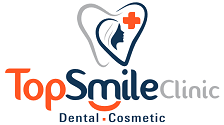News
Things every parent needs to know about baby teeth

Babies aren’t actually born without teeth; in fact, they are born with 20 baby (primary) teeth that just haven’t appeared (erupted) yet. You can expect your baby’s teething process to begin anywhere between 6 months and 12 months of age. Look for excessive drooling, red and swollen gums, cheek rubbing, or a mild fever. Usually, the first teeth to erupt are the bottom front teeth (incisors)
Seeing your baby’s first teeth appear is an exciting time in a child’s early years. Teeth give your baby new ways to eat, speak and smile.
Here are 5 things every parent needs to know about baby teeth.
A good tooth brushing regimen is must
Starting a baby on a good tooth brushing regimen will help him/her develop healthy teeth. You should fix time to brush his or her teeth. If parents fail to brush and floss regularly, there is an increased risk of cavities and gum disease in a baby. A healthy baby will be able to properly chew his or her food and will be able to drink enough fluids without any problems.
First dental visit
It is important that your child attends for the first dental visit when their teeth appear or by the time they are one year old. Studies have shown that early dental visits can help to reduce risks by providing preventive measures to keep teeth healthy.
Fluoride should be added to your child’s diet at 6 months of age.
Fluoride is a mineral that helps prevent tooth decay by hardening the enamel of teeth. The good news is that fluoride is often added to tap water. Give your baby a few ounces of water in a sippy or straw cup when you begin him or her on solid foods (about 6 months of age).
Balanced diet is essential
A balanced diet is also essential for your child’s teeth and mouth health. If you don’t give your child the proper nutrition when they are young, it will just carry over into their adult life. You should be getting your child plenty of fruits and vegetables, along with a few dairy products. Dairy products are great because they contain calcium, which is important for their growing bones.
Baby teeth can also be harmed by finger sucking and dummies
Long-term dummy use may lead to: incorrect positioning of teeth – upper teeth may be pushed further forward than is ideal, or the top and bottom front teeth may not touch. This can change the way the teeth meet when the child bites and can also affect speech development, especially s and z sounds.
Even though your child will lose their baby teeth, they should be cared for as though they were permanent. Maintaining baby teeth largely falls on the adults who care for them. Simply keeping your own teeth healthy and brushing your teeth regularly can have a positive impact on your child’s oral health. By helping prevent dental decay and forming good oral hygiene habits with your children, you can help them keep their smiles for a lifetime.
If you would like to book a dental appointment for your child, do not hesitate to call the surgery on
(02) 9051 2868
RECENT POSTS & TIPS
- Reasons to See a Dentist for Teeth Whitening
- Smiling with Ease: The Advantages of Flexible Dental Partials
- How safe are X-rays?
- Preparing for tooth extraction
- A tooth has fallen out; what should I do?
- What is a dental crown, and why do we require one?
- Tips for brushing your teeth like a dentist
- Things every parent needs to know about baby teeth
- Why you need to drink more water to protect your teeth.
- Can I get braces even though I’m an adult?
YOUR TOP SMILE
Top Smile dental clinic is affordable and family friendly dentist. Conveniently located in Mascot with free parking.




















































